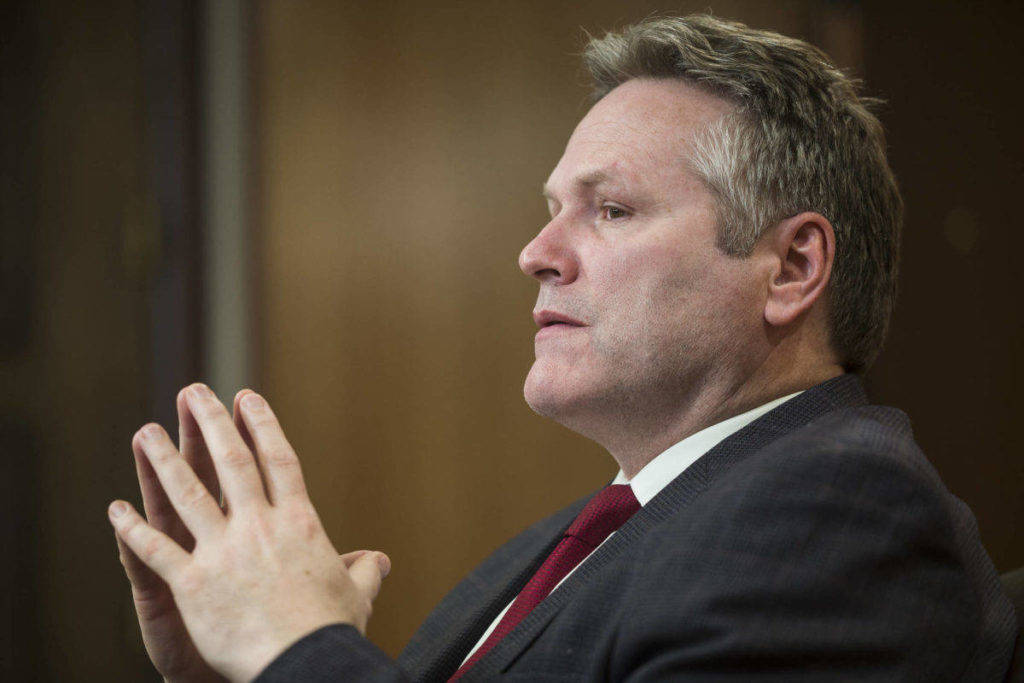Gov. Mike Dunleavy on Wednesday signed a bill that will extend the existence of the Statewide Suicide Prevention Council to 2027.
The council, which was created in 2001, advises the governor and legislature on suicide-related issues. It also works with communities, educators and faith groups to prevent suicide in Alaska.
“We know for sure the council is going to be in place for the next seven years,” said acting Executive Director for the council Bev Schoonover in a phone interview after the signing. “It’s really nice to get recognized by the governor and the legislature.”
The council’s expiration date without the bill was Sunday.
In the past, the council has been extended three years at a time, Schoonover said. It also typically formulates a five-year prevention plan, and Schoonover said it’s nice to have an extension that lasts past the 2018 plan.
Senate Bill 10, which led to the extension, enjoyed widespread bipartisan support on its way to the governor’s desk. It was sponsored by Sen. Scott Kawasaki, D-Fairbanks, and co-sponsored by democratic and republican senators and representatives.
[Suicide prevention bill gains widespread support in the Senate]
Dunleavy said Wednesday the work of the council is important for the health and wellness of all Alaskans, during a press conference for the bill’s signing at the Alaska Department of Health and Social Services Frontier Building in Anchorage.
“Suicide is not a rural problem, it’s not an urban problem,” Dunleavy said. “It’s a statewide problem. It’s an Alaskan problem.”
In 2016, the suicide rate in Alaska was 25.3, according to the Statewide Suicide Prevention Council’s 2017 annual report. That was nearly twice the national rate of 13.42, according to the National Foundation for Suicide Prevention. That high rate actually represented a decrease in the total number of people who died by suicide statewide, according to the annual report.
Wednesday’s extension excited local suicide prevention advocates, who said it shows suicide prevention is something supported by the state’s highest office.
“We’re glad the state sees it as a priority area and recognizes it,” said Aaron Surma, community services director for Juneau Youth Services in a phone interview. “We appreciate that the state is willing to pay special attention to it. We’re very pleased.”
Juneau Youth Services works with and supports the work done by Juneau Suicide Prevention Coalition. Surma said since the coalition is not incorporated, JYS is the fiduciary — person or organization who manages assets for another entity — for the coalition.
[Vigil remembers those lost to suicide]
Surma said while the council does not work directly with the coalition, people have worked with both bodies.
Plus, the work the statewide council does affects the way Juneau Suicide Prevention Coalition and every other locally focused suicide prevention group approaches their work.
That’s important, Surma said because it means many groups in different areas take a more standardized approach to prevention, which helps make peer-to-peer connections.
“They set an agenda for the state in regards to suicide prevention,” Surma said. “They set the tone statewide, and it trickles down to the work we do.”
• Contact reporter Ben Hohenstatt at (907)523-2243 or bhohenstatt@juneauempire.com. Follow him on Twitter at @BenHohenstatt.

